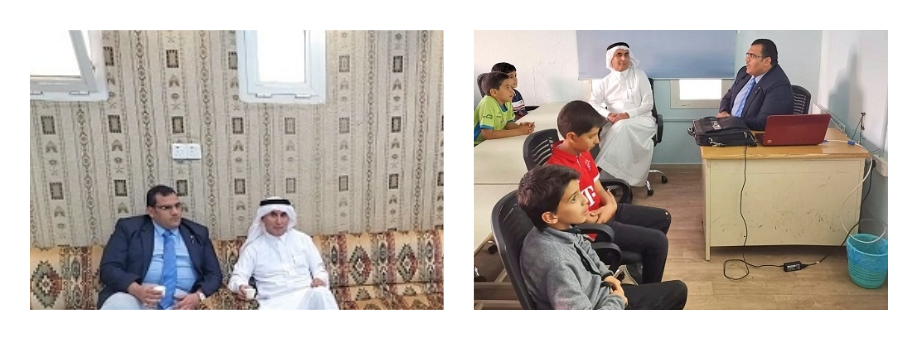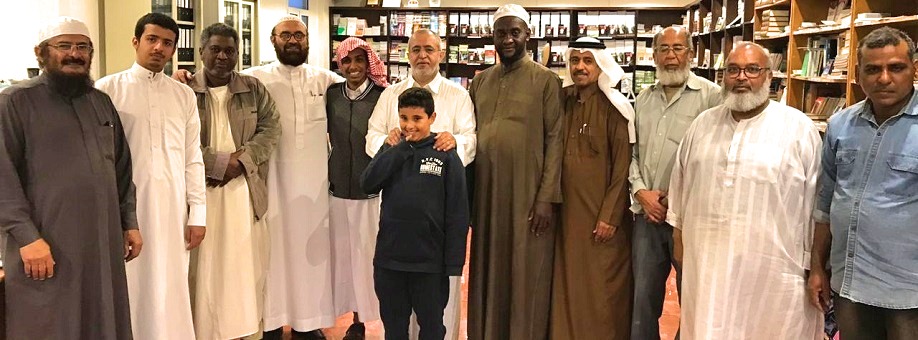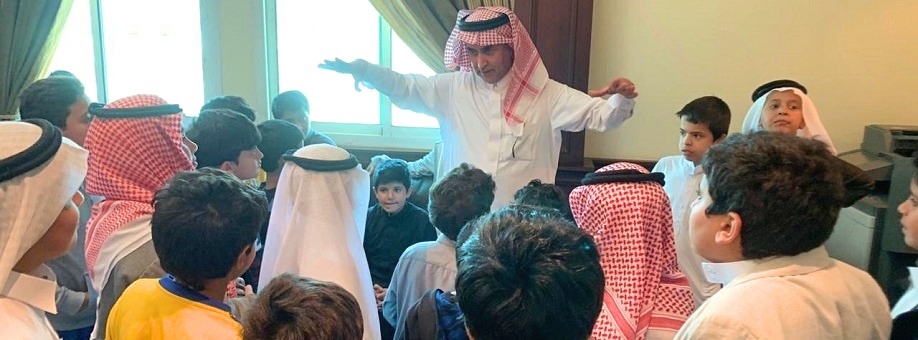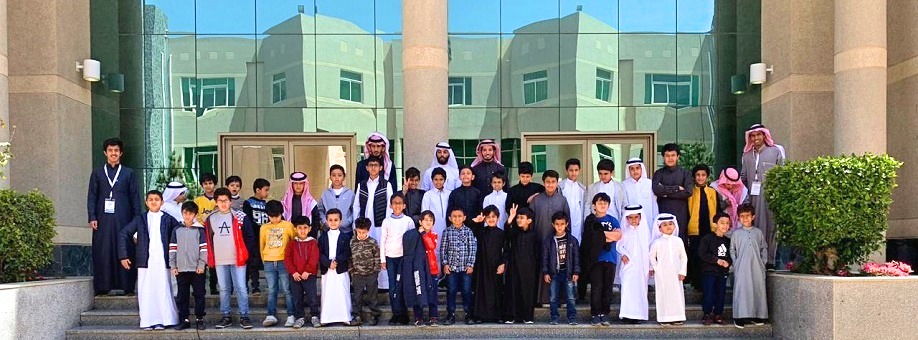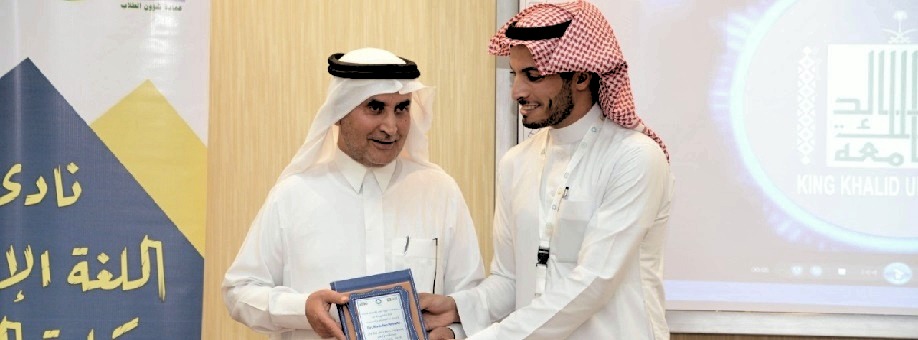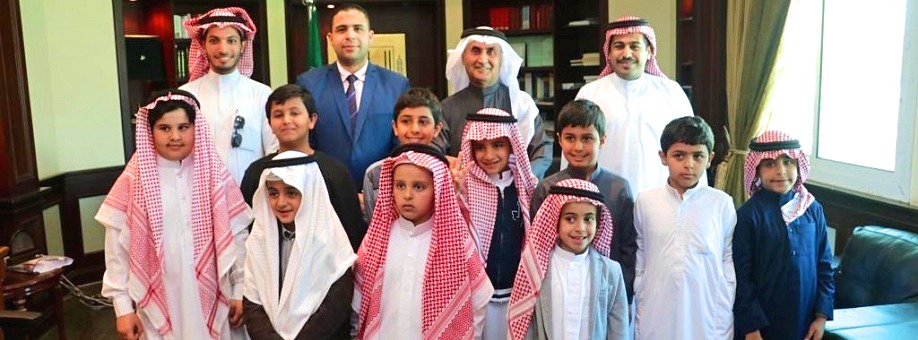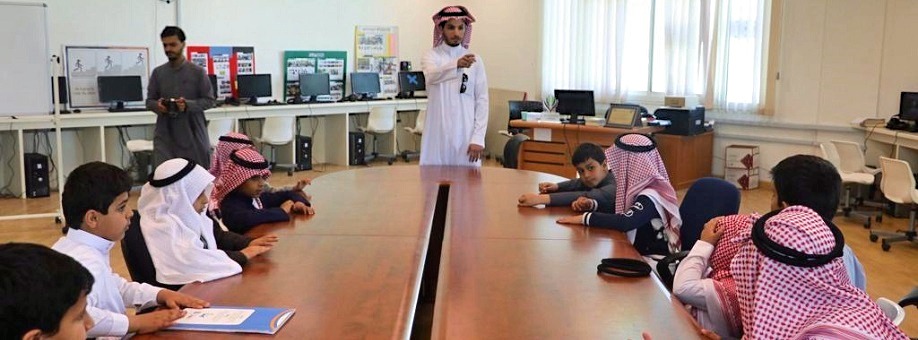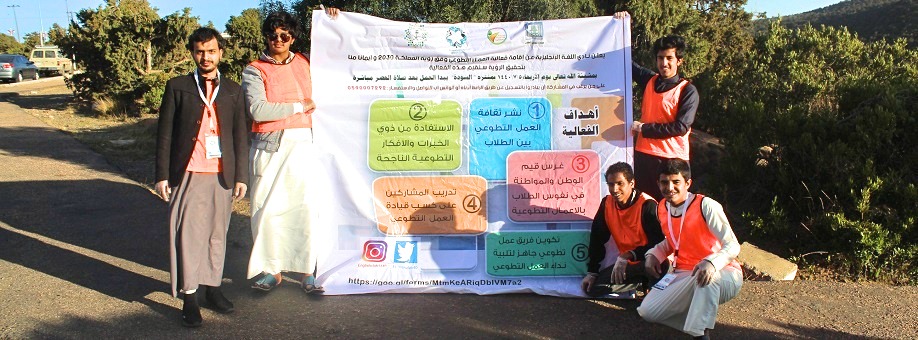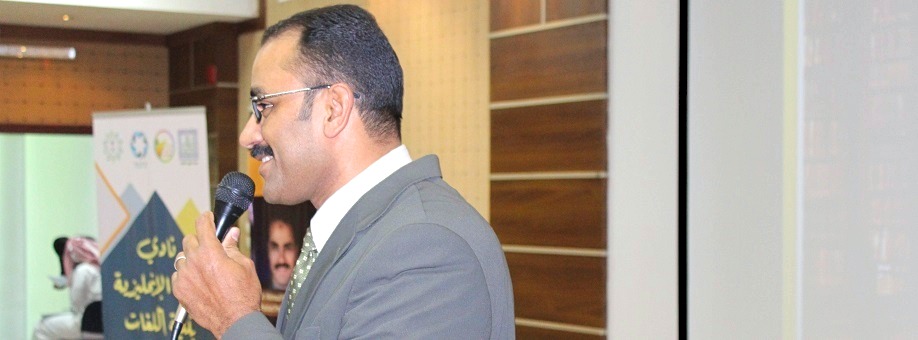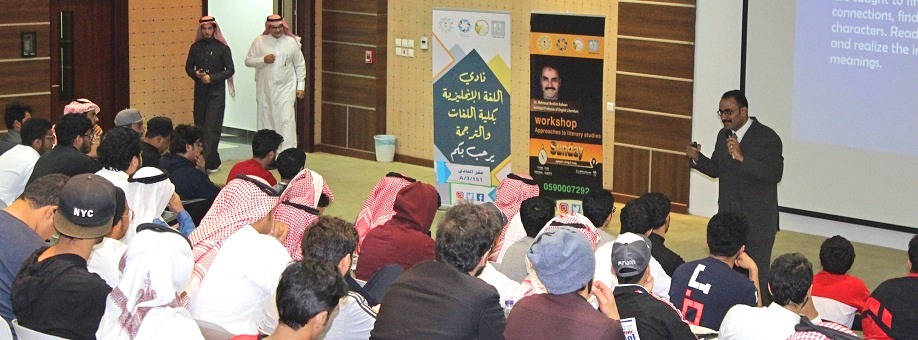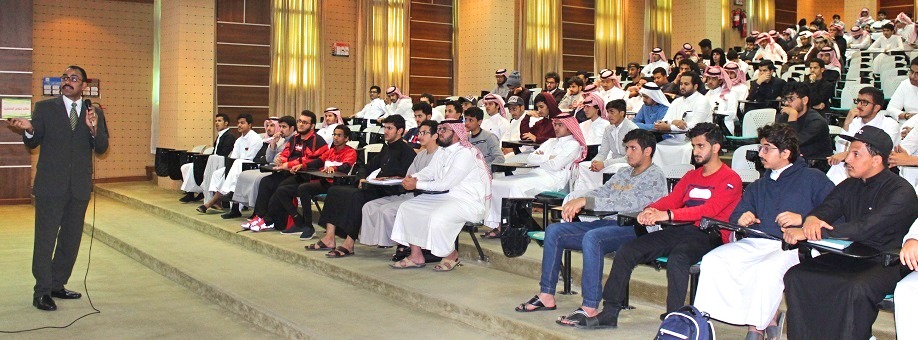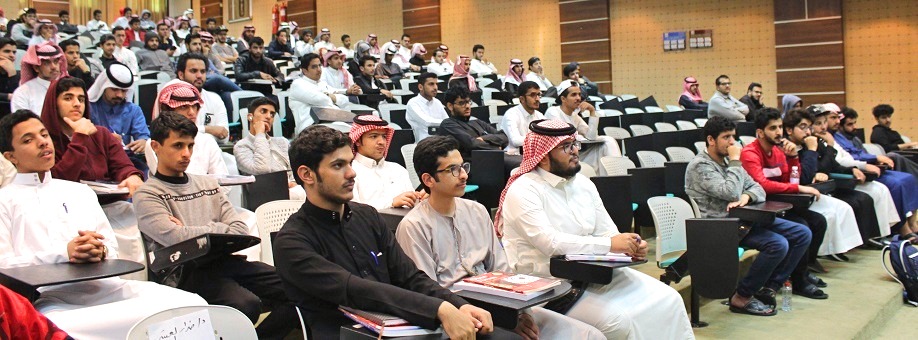Working in Close Partnership with Community: FLT Visits Elementary School
The Faculty of Languages & Translation (FLT) is partnering with the Asir Region Directorate of Education on community outreach initiatives. On March 31st, Habib Bin Zaid Elementary School in Abha hosted Dean, Dr. Abdullah Al-Melhi, and Dr. Eyhab Bader Eddin, MCIL, CL. Many of the students, along with some of their teachers and administrators, participated. The purpose of the program was to introduce the children to higher education and foreign language usage.
School Principal, Mr. Mohammed Farhan, first welcomed the FLT visitors to the enthusiastic crowd. After leading the students through a few linguistic exercises to pique their interest, Dean Al-Melhi and Dr. Bader Eddin transitioned their presentation into the fundamentals of translation. Of course, interpreting and translating are extremely complex disciplines that would be of little interest to most children. Undaunted, the FLT representatives simplified the concepts and broke down the process of translation into rudimentary components. Dean Al-Melhi and Dr. Bader Eddin used a 'down- to- earth' method, complete with simple examples that helped the students understand the need for and methods of translating. The simple and interesting method of introducing the topic came into fruition when face-to-face classroom interaction was observed.
Once the students were fully engaged, the FLT professors gave a brief PowerPoint presentation summarizing the importance, history, and methods of translation. They also showed the students the differences between simultaneous and consecutive interpretation. After reviewing the advantages and disadvantages of each method, the students voted on their preferred translation method.
Dean Melhi stated that, 'It is wonderful having the opportunity to reach out to young people. These grade school students represent unlimited potential, and the future of our nation. One day, some of them will definitely fill our shoes as professors, probably at the same faculty we are representing today, and they would bring back today's event. Vivid, sweet and warm or dim, distant and fading, their memory of today's fleeting visit will come flooding back in their memory. It is important to instill the desire for higher education and life-long learning at an early age. These cooperative outreach initiatives help inspire students, and present some of the career opportunities available to them as they mature'.
Dr. Bader Eddin echoed Dean Al-Melhi's sentiments in noting that keeping the Kingdom's youth engaged and hungry for learning is an absolute necessity. 'We want to show the children that universities are safe and welcoming places that help people learn more and do more in life. One abiding memory of mine dates back to childhood days back in Kuwait where I was sitting at a desk as a pupil. Evoking scenes from childhood days is retained for good with a delicate scent lingering in the air of memory', he added wallowing in a wave of nostalgia for childhood years. Dr. Bader Eddin then showed the students a series of short videos and multi-media presentations that reinforced the live lesson.
The Faculty of Languages and Translation is dedicated to community service and taking an active role in achieving educational and socioeconomic objectives at both the regional and national levels.
Date: 4/1/2019
Source: Faculty of Languages and Translation

